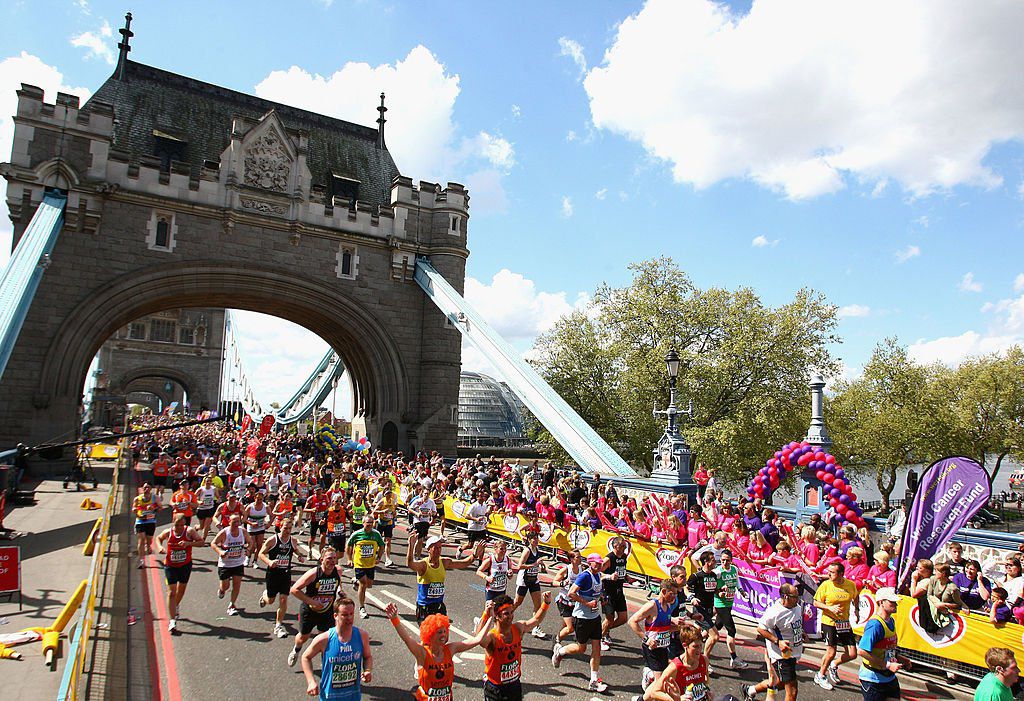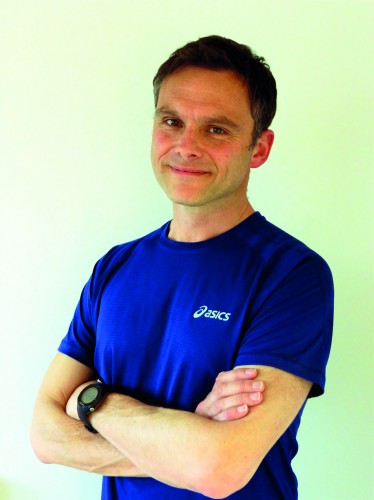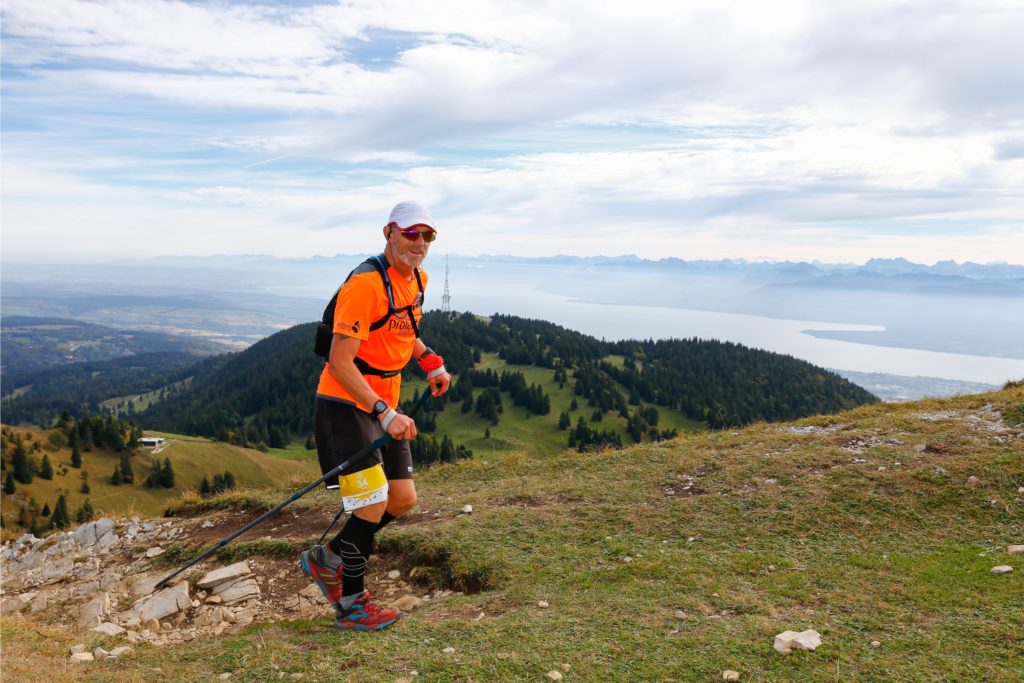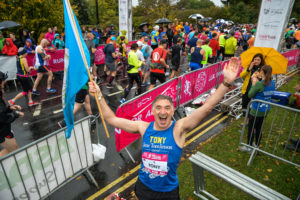
It’s Tuesday morning – the day after the day after. I wake up feeling cheerful, carefully negotiate the stairs and hobble into the kitchen where everyone is getting ready for the day.
I’m humming the London Marathon theme tune, quite loudly. My wife shoots me a warning look. “Sorry,” I say. “I guess the rosy glow of nostalgia has arrived.”
My son looks up from his breakfast. “Does that mean you’re going to run another one?”
Never say never, I tell him, noting as I speak that my policy has already shifted from the “never again” of 36 hours ago, much as it did from the “I’ll never run a marathon” of last year.
So not even two full days have passed since the single most demanding and painful experience of my life and already the idea of repeating it seems lodged in my brain.
Surprised by this, I try to cast my mind back to how I felt running up Victoria Embankment on Sunday.
I remember that the three miles still ahead of me felt more like 300. At this point I’d hoped to be cruising to a relatively comfortable sub-3.30 finish.
In reality, I was battling pain, debilitating tiredness and the overwhelming desire to stop and sob on a stranger’s shoulder.
They say the very survival of the human race depends on our ability to forget how pain really feels.
Without this, women would never have more than one child and the human gene-pool would have dried up millennia ago.
In a similar way, the modern marathon industry relies on repeat business from people like me whose memories of searing pain and miserable exhaustion are soon supplanted by a warm, fuzzy recollection that we were briefly part of something wonderful, something truly amazing.
The 2017 London Marathon was wonderful. And amazing. The scale of the event was mind boggling.
For the first time more than 40,000 runners took part; the vast majority of them pushing through to complete the course.
The organisation was slick and seamless, the atmosphere tangible and the support from those lining the route simply astonishing.
My ears were ringing for two hours after the finish from the sheer volume of the cheering.
Someone asked me if the raucous encouragement of the crowd had been a help or a hindrance. It was an interesting question.
There had definitely come a point where I’d stopped high-fiving kids at the barriers and had retreated inside myself to spend more time with my pain and misery.
This process began at the 20-mile mark, the exact point where I’d planned to speed up a little having run conservative even splits thus far.
The realisation that my plan had come unstuck, that my pace was slowing and I wouldn’t hit my target time, that my legs were stiffening and I felt nauseous all combined to suck the joy out of the experience for the best part of an hour.
I was being overtaken by runners of all shapes and sizes and at least one person in a giant emoji costume.
The only people not overtaking me were those who were already walking. I badly wanted to join the walkers but I realised it was the only thing I still had control over.
Whatever happened, I told myself, however awful I felt, I would not walk. So yes, the support of the crowd did help.
They wouldn’t have known it from my face but their shouts of encouragement kept me going forward, kept me running.
When I crossed the line I was only seven minutes off target. It only took me a few moments to realise this was still a good result; not a disaster at all.
I collected my medal and my bag, helped a lady beset with agonising cramps (got a tearful hug for my trouble) and spent the rest of the day smiling.
I could still remember the pain of those last six miles but already other things were beginning to seem more important.
I can see why people become serial marathon runners. I can also see why some people run one and say that’s enough.
There’s also plenty of good running to be done never going near a marathon start line.
Speaking for myself, having avoided them for years, I now have a proper respect for the 26.2-mile distance but also a nagging sense that I could have done things differently.
Like anything done for the first time, I learned some valuable lessons.
It would be a shame to waste them, especially as the marathon and I still have those seven minutes’ worth of unfinished business.






